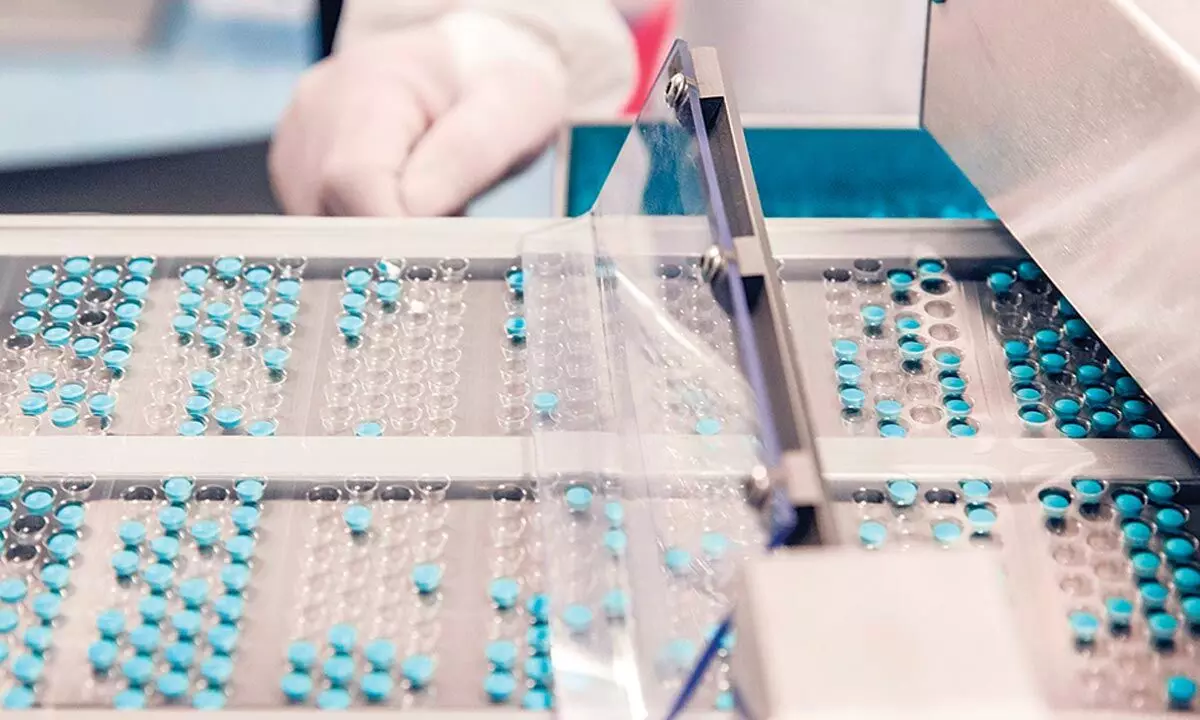Indian API industry in dire need of a monitoring cell
Gyrating prices of active pharmaceutical ingredients (APIs) have been a major issue the pharma industry facing
image for illustrative purpose

For instance, not very long ago, prices of APIs such as paracetamol have gone upto Rs 840 to 900/1000 per kg whereas its pre-Covid price was just Rs 300 per kg. Likewise, prices of excipients and solvents such as glycerin, propylene glycol, PVPK 30 and isopropyl alcohol have also skyrocketed
Gyrating prices of active pharmaceutical ingredients (APIs) have been a major issue the pharmaceutical industry in the country has been facing for a long time now. Periodically, the pharmaceutical industry in India is hit hard by the steep rise in prices of raw materials including APIs, excipients, solvents and packaging materials. MSME formulation units which are now struggling for survival in the current pandemic era have been the worst hit by gyrating prices of APIs, excipients, solvents and packaging materials including aluminum, PVC, glass vials, mono carton and corrugated packing.
For instance, not very long ago, prices of APIs such as paracetamol have gone upto Rs 840 to 900/1000 per kg whereas its pre-Covid price was just Rs 300 per kg. Likewise, prices of excipients and solvents such as glycerin, propylene glycol, PVPK 30 and isopropyl alcohol have also skyrocketed. The story of packaging materials is also not different as the prices of aluminium, printed, alu-alu foils have increased by more than 30 per cent, all in a matter of some months. Adding fuel to the problems of the industry, prices of mono cartons and corrugated packing have risen by 25 to 40 per cent and continue to go up while prices of PVC used for blistering of tablets and oral liquid PET bottles have witnessed a 25 to 30 per cent rise. High prices of vials, ampoules, flip off seal, and butyl seal parts have greatly affected the injectable products. Overall, there used to be an air of fear among the industry that if prices are not tamed, production of several drugs would soon be stopped.
The recent case of price rise of APIs is not a case in isolation in the country. In fact, the pharmaceutical industry in the country has been witnessing this kind of price fluctuation quite periodically. As India meets most of its API needs through imports from China, any changes in the policy in China will have a cascading effect on the prices of APIs in India. The Covid-19 outbreak and the subsequent disruption in supply of APIs from China to India was a recent case in point which has finally made the alarm bell ringing and has woken up the Indian government from its self-imposed slumber on framing a conducive policy on APIs to end the country's over-dependence on China for APIs. To make India self-reliant in production of active pharmaceutical ingredients (APIs), the central government has initiated several steps. In this direction, the government has approved a total expenditure outlay of Rs 9,940 crore. Under this project, the government approved a scheme of promotion of mega bulk drug parks for financing common infrastructure facilities in three bulk drug parks in different states with a financial implication of Rs. 3,000 crore during the next five years. The government will give grants-in-aid to states with a maximum limit of Rs 1,000 crore for each bulk drug park. More importantly, the central government approved the production linked incentive (PLI) scheme for promotion of domestic manufacturing of critical key starting materials (KSMs)/drug intermediates and APIs in the country with financial implications of Rs 6,940 crore for the next eight years. Better late than never, the government's initiatives are definitely a right step in this direction as it can restore the Indian API industry's past glory if the scheme is implemented in letter and spirit. Till two decades ago, the country has been producing most of the APIs required in the country and even exporting a major part of the same to Europe and the US. But, the high cost of production because of comparatively low scale of operations and higher input costs rendered the domestic API production economically unviable. And stringent environmental regulations added fuel to the fire, forcing the pharma companies to turn to China which emerged as a producer of cheap APIs with huge capacities and lower cost of production.
Another major reason for the periodic fluctuation of the prices of APIs in the country is that the country, at present, does not have a mechanism to check rising prices of APIs on the lines of National Pharmaceutical Pricing Authority (NPPA) which regulates the prices of medicines. A solution to this grievous issue has long been overdue. The sooner the government understands the seriousness of the issue, the better for the pharmaceutical industry as a whole in the country. So, without wasting further time, for regulating the prices of APIs, the government should establish an 'API Monitoring Cell' which will surely curb the malpractices in APIs and excipients businesses in the country. That the government was also seized of the issue was evident from the fact that the Union Health Ministry, at the Indian Pharmaceutical Association Forum meet held at CDSCO headquarters in New Delhi on August 28, 2018, had declared that the government will establish an API Monitoring Cell to control the twin issues of poor quality of APIs and overcharging of APIs by the importers taking advantage of the situation arising out of the disruption in its supply. Unfortunately, as is the case with several other proposals, this proposal has also been gathering dust in the shelves of the Department of Pharmaceuticals for the last around four years. As the API prices and its quality will have a direct bearing on the pharmaceutical industry, an API Monitoring Cell is the need of the hour. The government should pay heed to the industry's need in this regard.
(The author is freelance journalist with varied experience in different fields)

